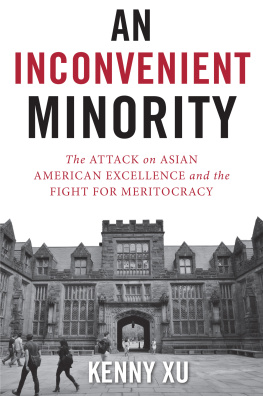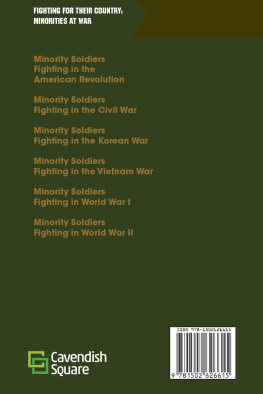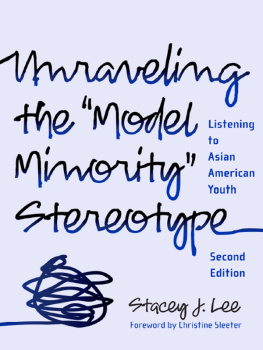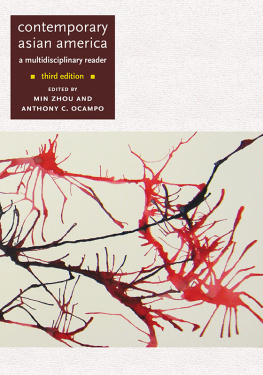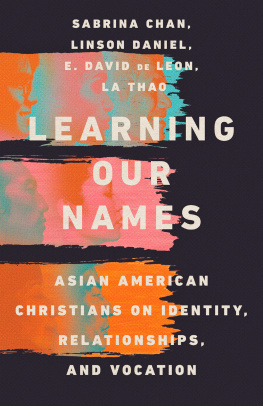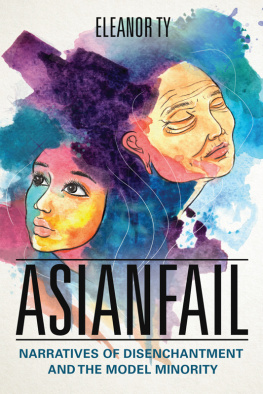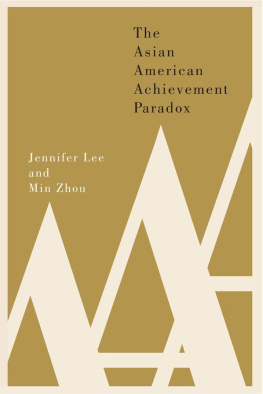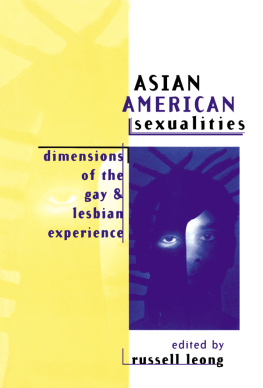Foreword
Within Our Many, an Inconvenient One
E Pluribus Unum. From many, one. This is the motto of the greatest and most successful diversity project in human historythe United States of Americasuccessful, at least, until very recently.
There are, of course, reasons to regard this characterization of the nation with skepticism, even criticism. When the foundational documents of this nation were calling to an ideal of all men are created equal and are endowed by their Creator with certain inalienable rights, the hand that wielded that pen also held dominion over people he, himself, enslaved. From that fateful date in 1776 until 1865, slavery and the racism and white supremacy that maintained it were institutional and systemic in this nation, despite its lofty ideals. Even then, for another 99 unjust years, legal equality for Black Americans would remain elusive, and racism would persist beyond even then, baked deeply in some ways into American life and still bearing material and psychic consequences to this very day. Few deny this.
Simultaneously, other forms of racism and discrimination applied to other groups, mostly of immigrant origin, even as they came in as poor, huddled masses, yearning to be free, whether on Ellis Island in sight of the statue bearing that famous verse or elsewhere in the country. One of these forms of racism was anti-Asian, that catch-all term for many immigrants from the various diverse nations of South and particularly East Asia and other regions of the Pacific. Though lesser known, this discrimination was in many ways severe, including overt exclusion and disenfranchisement via the Chinese Exclusion Act and internment of Japanese Americans during World War II. All of this was backed by racism and white supremacy as well.
These are dark stains on the history of this nation. They are terrible errors we should be proud to have made so much progress in mostly, though not completely, overcomingto the great credit of the courageous individuals who stood up against the brutal effects of having their racial and ethnic identities imbued with unjust social significance and used as a basis for discrimination against them. E Pluribus Unum was, for far too long, a work in progress that stayed short on the progress. Progress came, though, and the idealistic American Experiment slowly proved itself to be the greatest diversity program in the history of the world.
Nevertheless, there is, even as you read this illuminating volume, already underway a concerted movement to re-introduce and re- institutionalize racism and discrimination throughout the West and in the United States in particularin the name of greater or perfected progress. In academic circles, it goes by the name Critical Race Theory, and it holds that racism is the ordinary state of affairs in American life and thus relevant to all interactions, institutions, and phenomena. As a result, Critical Race Theory pushes the idea that ones racial and ethnic background should be made more materially relevant, not less, and it openly doubts, in its own words, the very foundations of the liberal order, including equality theory, legal reasoning, Enlightenment rationalism, and the neutral principles of constitutional law.
As if re-making one of the worst mistakes of our past wasnt bad enough, Critical Race Theory also openly denigrates a key American virtue merit, that combination of talent and hard work that makes for genuine, well-earned success. This denigration of merit (as well as individualism) leads it not only to repudiate the foundational premises of America but also that has a disproportionate impact on one racial minority group in the United States more than any other: Asian Americans.
Why? Because, as Kenny Xu lays out in this sparkling volume (with no shortage of personality, I might wryly add), Asian Americans have disproportionately come to this country with little more than their talents, willingness to work hard to achieve, and a burning desire for a fair shake in a country that values fairness, equality, and more meritocracy than almost any other place on Earth. More importantly, they have succeeded in this regard, to their own credit and to that of our nation.
Asian American successarising through little more than meritpositions them as an inconvenient minority for the narrative of Critical Race Theory. The Theory contends the opposite: that systemic racism, thus ones racial or ethnic origin, not merit is the most determinant factor upon ones life and that theres little or nothing an individual can do to make up for it. This presents a paradox for Critical Race Theory because merit cannot be the reason for the success of members of a minoritized group, but in the case of Asian Americans, it undeniably is that reason.
Critical Race Theorists attempt to resolve the Asian inconvenient minority paradox the only way the Theory will allow: by accusing Asian Americans of being model minorities, white-adjacent, or just white, and arguing that they push to succeed because they possess and want to keep white (or yellow) privilege and engageas a groupin anti-Blackness. Through their one lens of zero-sum racial conflict theory, Critical Race Theorists have only one explanation for Asian American success where it exists: participation in racism. Not hard work. Not sacrifice to succeed. Collusion in evil and oppression. And this must be their resolution to the paradox they write for themselves. In Critical Race Theory, merit is considered a feature of white supremacy culture, so those who believe in it and succeed by it must be upholding white supremacyeven if they are Asian.
Critical Race Theory is, then, as anti-merit as it is anti-equality, and this causes it to be anti-Asian Americanexcept when it can make use of other types of anti-Asian racism to co-opt Asian solidarity to their cause. In An Inconvenient Minority , Kenny Xu lays bare the many ways that Critical Race Theory and its activists cannot comprehend or tolerate the basic fabric of the American clothE Pluribus Unumor see Asian American success as well-earned, well-deserved, and a valuable and crucial contribution to the course of American history and twenty-first century life for All of Us Many, as One.
James Lindsay
Author of the best-selling book Cynical Theories: How Activist Scholarship Made Everything about Race, Gender, and Identityand Why This Harms Everybody.
February 20, 2021


